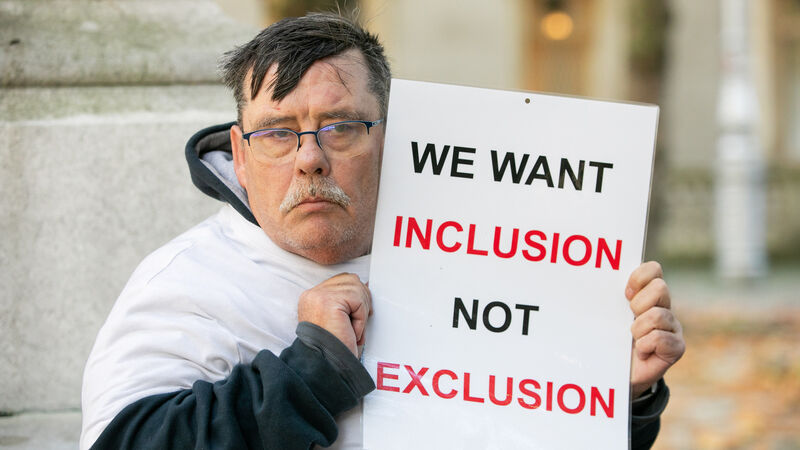'We are not afraid to die': Industrial school survivors vow to continue 32-day hunger strike

Maurice Patton O'Connell from Cahirciveen, Co Kerry: 'This is not just for four of us, this is for our survivors.' Picture: Gareth Chaney
Four industrial school survivors who are on hunger strike outside the Dáil over what they claim are failed promises of supports from Government have vowed to carry on their campaign saying: “We are not afraid to die”.
Maurice Patton O’Connell, aged 57, from Caherciveen, Co Kerry, and Mary Donovan, originally from Kerry but living in Tipperary, are now 32 days without food and are surviving on water and coffee. They are joined in the hunger strike by Miriam Moriarty Owens and Mary Dunleavy Greene, who also spent time in industrial schools.










